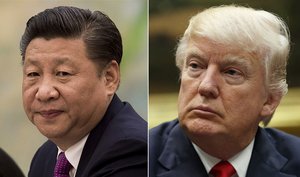
Woman
A woman is a female human. The term woman is usually reserved for an adult, with the term girl being the usual term for a female child or adolescent. The term woman is also sometimes used to identify a female human, regardless of age, as in phrases such as "women's rights". "Woman" may also refer to a person's gender identity. Women with typical genetic development are usually capable of giving birth from puberty until menopause. In the context of gender identity, transgender people who are biologically determined to be male and identify as women cannot give birth. Some intersex people who identify as women cannot give birth due to either sterility or inheriting one or more Y chromosomes. In extremely rare cases, people who have Swyer syndrome can give birth with medical assistance. Throughout history women have assumed or been assigned various social roles.
Etymology
The spelling of woman in English has progressed over the past millennium from wīfmann to wīmmann to wumman, and finally, the modern spelling woman. In Old English, wīfmann meant "female human", whereas wēr meant "male human". Mann or monn had a gender-neutral meaning of "human", corresponding to Modern English "person" or "someone"; however, subsequent to the Norman Conquest, man began to be used more in reference to "male human", and by the late 13th century had begun to eclipse usage of the older term wēr. The medial labial consonants f and m in wīfmann coalesced into the modern form "woman", while the initial element, which meant "female", underwent semantic narrowing to the sense of a married woman ("wife"). It is a popular misconception that the term "woman" is etymologically connected with "womb", which is from a separate Old English word, wambe meaning "stomach" (of male or female; modern German retains the colloquial term "Wampe" from Middle High German for "potbelly"). Nevertheless, such a false derivation of "woman" has appeared in print.

Women (Def Leppard song)
"Women" is a song released by English hard rock band Def Leppard in 1987 from the album Hysteria. It was the first single release off the album in the United States. The song was also released as a single in Canada, Australia, Japan, and was part of a double-A side single with "Animal" in Germany. In most other parts of the world, "Animal" was the first single released from the album.
The single's B-side, "Tear It Down", was written during a recording session following the completion of the Hysteria album, where the band laid down several tracks intended as B-sides for the Hysteria singles. Subsequently, the song itself received radio airplay and was later performed by the band live at the 1989 MTV Video Music Awards.
The band later re-recorded "Tear It Down" for the Adrenalize album.
The music video for "Women" focuses on a boy who reads a comic book outside an abandoned warehouse while the band performs inside. The comic book, titled "Def Leppard and the Women of Doom!," features a skateboarding protagonist named Def Leppard, who travels to a distant planet and battles evil aliens to liberate female robots.

Women (novel)
Women is a 1978 novel written by Charles Bukowski, starring his semi-autobiographical character Henry Chinaski. In contrast to Factotum, Post Office and Ham on Rye, Women is centered on Chinaski's later life, as a celebrated poet and writer, not as a dead-end lowlife. It does, however, feature the same constant carousel of women with whom Chinaski only finds temporary fulfillment.
Plot
Women focuses on the many dissatisfactions Chinaski faced with each new woman he encountered. One of the women featured in the book is a character named Lydia Vance; she is based on Bukowski's one-time girlfriend, the sculptress and sometime poet Linda King. Another central female character in the book is named "Tanya" who is described as a 'tiny girl-child' and Chinaski's pen-pal. They have a weekend tryst. The real-life counterpart to this character wrote a self-published chapbook about the affair entitled "Blowing My Hero" under the pseudonym Amber O'Neil. The washed-up folksinger "Dinky Summers" is based on Bob Lind.
'Women' is featured as a movie character in the following productions:
Ghillie Y La Nada: Charlas Sobre Identidad (2014)
Actors: Marybel Acevedo (actor), Hugo Afanador (actor), Carlos Alberto (actor), Abelardo Fonseca (actor), Cecilia Latorre Latorre (actor), Kadir Abdel Rahim (actor), Orlando Díago Rodriguez (actor), Carolina Rubio (actor), Juan David Silva Torres (actor), Anton Wenzel (writer), Anton Wenzel (director), Anton Wenzel (editor),
Plot: Maria and Miguel are sitting in a bar. Miguel wants to shoot a short film. While he really only seems to be interested in having sex with Maria, she has an abstract approach to the topic of the film and suggests her ideas. Meanwhile a film crew is trying to shoot a short film, but is being distracted by the confused director. And there is a strange figure, that does not seem to show any familiar signs of identity. Ghillie and the Nothing: About Identity is a short movie not only about different ideas and definitions of identity as itself, but also a film dealing with identity in terms of cinematographics reality and layers of narration.
Genres: Comedy, Drama, Short,If You Loved Me (2013)
Actors: Vickie Dailey (actor), Michele Hlass (actor), Michael Lee Kimel (actor), Katie McWhorter (actor), Mark Meekins (actor), Alynna Montanez (actor), Gail Shields (actor), Marilyn Chung (actress), Elisa Clark (actress), Roxy Collins (actress), Jeanette Li (producer), Marshall O. Wells III (producer), Vickie Dailey (writer), Rush Pfeiffer (composer), Jeanette Li (director),
Genres: Drama, Short,If You Loved Me (2013)
Actors: Vickie Dailey (actor), Michele Hlass (actor), Michael Lee Kimel (actor), Katie McWhorter (actor), Mark Meekins (actor), Alynna Montanez (actor), Gail Shields (actor), Marilyn Chung (actress), Elisa Clark (actress), Roxy Collins (actress), Jeanette Li (producer), Marshall O. Wells III (producer), Vickie Dailey (writer), Rush Pfeiffer (composer), Jeanette Li (director),
Genres: Drama, Short,The Rooster Must Die (2012)
Actors: Iain Clark (actor), Marc Forde (actor), Caroline Leach (actor), Jeffrey Mayhew (actor), Laurence Pears (actor), Marcus Taylor (actor), Denise Rocard (actress), Lena Sandberg (actress), Simon Cousin (producer), Parag Sankhe (producer), Debora Setnik (producer), Kent Flaagan (writer), Philip Appleby (composer), Sylvain Agathine (costume designer), Parag Sankhe (director),
Genres: Comedy, Drama, Musical, Short,Imaginary (2011)
Actors: Whitney Hamm (actor), Shawn Mac (actor), Trevor Notz (producer), Shawn Mac (writer), Austin Ketelsen (director), Shawn Mac (director), Trevor Notz (editor), Rodney Bird (miscellaneous crew), Rodney Bird (miscellaneous crew), Shawn Mac (miscellaneous crew),
Genres: Drama, Short,Road Rage the other I (2007)
Actors: Anthony Azar (actor), Anthony Azar (actor), Tonya Hall (actor), Anthony Azar (producer), Anthony Azar (writer), Anthony Azar (director), Eric Emerick (editor),
Genres: Short, Thriller,Bangers (1995)
Actors: Red Bull (actor), Edgar Castro (actor), Edgar Castro (actor), King Castro (actor), King Castro (actor), Lito Castro (actor), Rodel Castro (actor), Rodel Castro (actor), Third Castro (actor), Third Castro (actor), Mykell Chan (actor), Chiquito (actor), Rey Conde (actor), The D.M. Boys (actor), Red Bull (actor),
Genres: Comedy,Halgato (1995)
Actors: Ludvik Bagari (actor), Kristjan Borovsak (actor), Peter Bostjancic (actor), Rok Cvetkov (actor), Denis Kramberger (actor), Joze Kramberger (actor), Vlado Kreslin (actor), Jernej Kuntner (actor), Tone Kuntner (actor), Peter Musevski (actor), Vlado Novák (actor), Manuel Sarkezi (actor), Uros Tatomir (actor), Dario Varga (actor), Ljerka Belak (actress),
Genres: Crime, Drama, Music,Bangers (1995)
Actors: Red Bull (actor), Edgar Castro (actor), Edgar Castro (actor), King Castro (actor), King Castro (actor), Lito Castro (actor), Rodel Castro (actor), Rodel Castro (actor), Third Castro (actor), Third Castro (actor), Mykell Chan (actor), Chiquito (actor), Rey Conde (actor), The D.M. Boys (actor), Red Bull (actor),
Genres: Comedy,Bangers (1995)
Actors: Red Bull (actor), Edgar Castro (actor), Edgar Castro (actor), King Castro (actor), King Castro (actor), Lito Castro (actor), Rodel Castro (actor), Rodel Castro (actor), Third Castro (actor), Third Castro (actor), Mykell Chan (actor), Chiquito (actor), Rey Conde (actor), The D.M. Boys (actor), Red Bull (actor),
Genres: Comedy,- Season 1
-
Episode 1: Libbers
UK:8 March 2010...
-
Episode 2: Mothers
UK:15 March 2010...
-
Episode 3: Activists
UK:22 March 2010...
Women
Cast
- Janet Dale
- Sara Sugarman
- Kimberley Evans
- Janet Rawson
- Derek Thompson
- Maureen Beattie
- Jean Rimmer
- Drew Dawson
- Fay Howard
- David Bannerman
- Leonie Mellinger
- Judy Elrington
- Susan Littler
- Sarah Livesey
- Tricia Fuller
-
Episode : The Clarion Van
UK:5 July 1983...
-
Episode : Hard to Get
UK:19 July 1983...
-
Episode : Whale Music
Llandudno, Conwy, Wales, UK...
Women
ALBUMS
- CBC Radio 3 Sessions Podcast released: 2010
- Public Strain released: 2010
- Women released: 2008
Women
Women, can't live with 'em
And somehow you can't ever live without
Women, can't understand 'em
But tryin' to is what makes the world go 'round
I've made a sad one laugh and I've made a good one cry
I've made one scream my name to the good Lord by and by
I've made 'em go insane and I've made 'em go away
Just can't ever seem to make one stay
Women, they're all crazy
Some hide it well and some just let it show
Women, take it from me
I've been around enough of them to know
I've made a sad one laugh and I've made a bad one cry
I've made one scream my name to the good Lord by and by
I've made 'em go insane and I've made 'em go away
I just can't ever seem to make one stay
Women, ain't no winnin'
When all they want to do is fuss and fight
Women, keep our heads spinnin'

Woman
A woman is a female human. The term woman is usually reserved for an adult, with the term girl being the usual term for a female child or adolescent. The term woman is also sometimes used to identify a female human, regardless of age, as in phrases such as "women's rights". "Woman" may also refer to a person's gender identity. Women with typical genetic development are usually capable of giving birth from puberty until menopause. In the context of gender identity, transgender people who are biologically determined to be male and identify as women cannot give birth. Some intersex people who identify as women cannot give birth due to either sterility or inheriting one or more Y chromosomes. In extremely rare cases, people who have Swyer syndrome can give birth with medical assistance. Throughout history women have assumed or been assigned various social roles.
Etymology
The spelling of woman in English has progressed over the past millennium from wīfmann to wīmmann to wumman, and finally, the modern spelling woman. In Old English, wīfmann meant "female human", whereas wēr meant "male human". Mann or monn had a gender-neutral meaning of "human", corresponding to Modern English "person" or "someone"; however, subsequent to the Norman Conquest, man began to be used more in reference to "male human", and by the late 13th century had begun to eclipse usage of the older term wēr. The medial labial consonants f and m in wīfmann coalesced into the modern form "woman", while the initial element, which meant "female", underwent semantic narrowing to the sense of a married woman ("wife"). It is a popular misconception that the term "woman" is etymologically connected with "womb", which is from a separate Old English word, wambe meaning "stomach" (of male or female; modern German retains the colloquial term "Wampe" from Middle High German for "potbelly"). Nevertheless, such a false derivation of "woman" has appeared in print.
Latest News for: women
Appeals court says Springfield can require women to keep nipples under wraps
Players seeking change for women's soccer in Latin America
 The Virginian-Pilot
07 May 2019
The Virginian-Pilot
07 May 2019
Longtime Nebraska women’s golf coach Robin Krapfl retiring
Garfield County Republican Women meeting Friday
 Enid News & Eagle
07 May 2019
Enid News & Eagle
07 May 2019
Buauty Caftan Dresses for Women V Neck Long Kaftan Cover Up Summer Maxi Dress Plus Size
AUSELILY Women's Short Sleeve Pockets Empire Waist Pleated Loose Swing Casual Flare Dress (2XL, Wine Red)
Hanna Nikole Women Plus Size Lightweight Raincoat Travel Hoodie Rain Jacket HN0037
Southside PD holds first women's self-defense class; more to follow
 The Gadsden Times
07 May 2019
The Gadsden Times
07 May 2019
Refurbished Scots sewing machines are helping young women in Ghana to a better life
Rafiq and Co hope to emulate women’s feat during PBA tourneys
- 1
- 2
- 3
- 4
- 5
- Next page »
News Search
Most Viewed
WorldNews.com | 07 May 2019
The Independent | 07 May 2019
Press TV | 07 May 2019
Yahoo Daily News | 07 May 2019
WorldNews.com | 07 May 2019





































